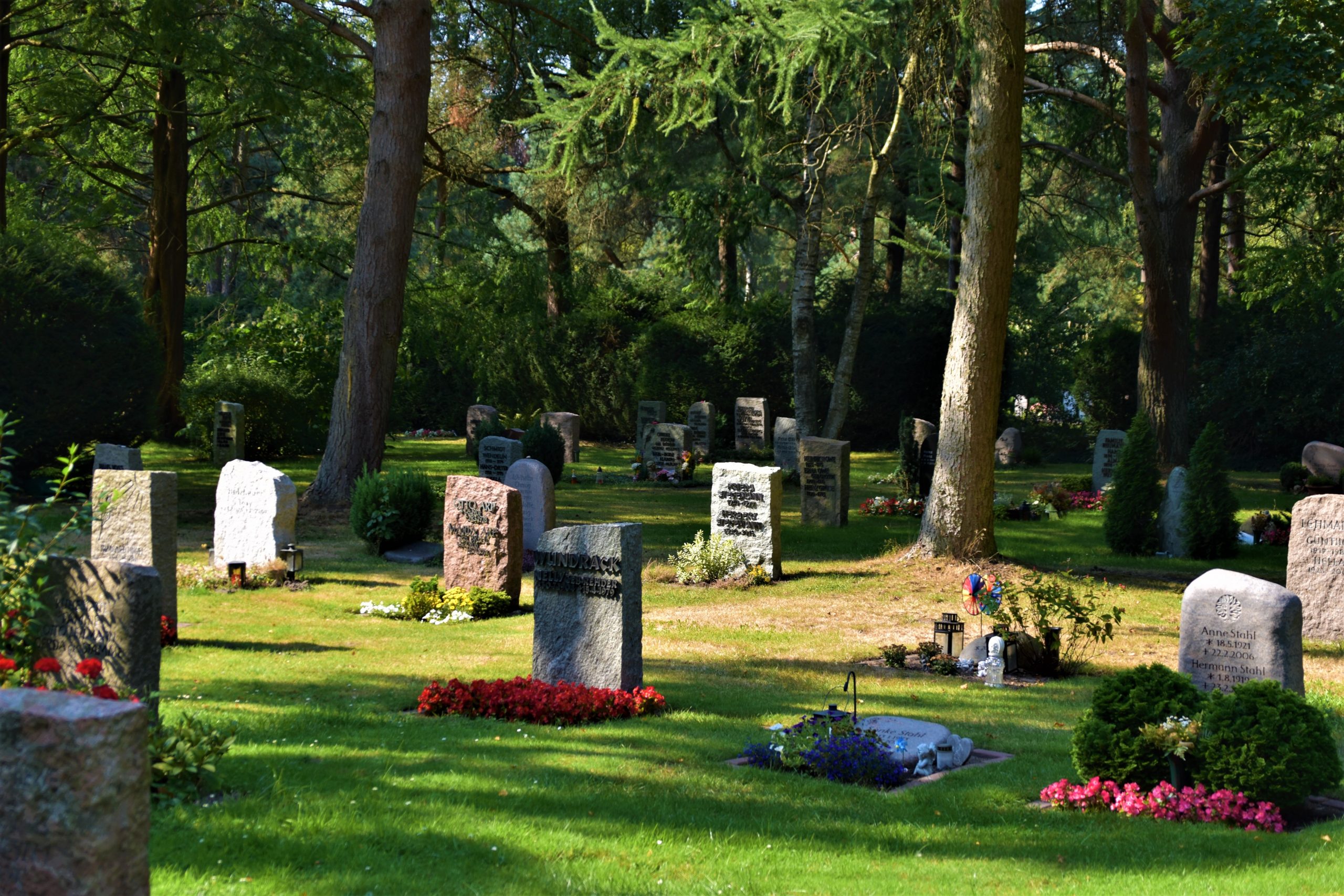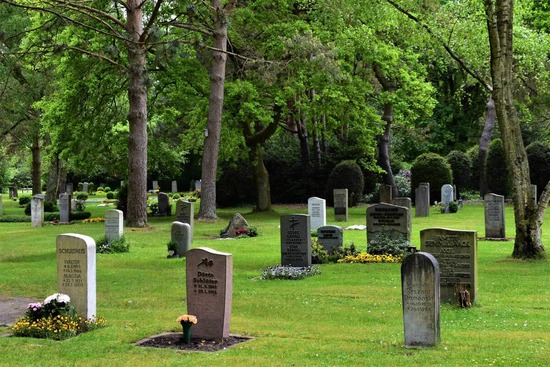Do Seventh-day Adventists Believe in Hell?
Seventh-day Adventists believe that any human being who accepts God’s free gift of salvation through Jesus will be given eternal life. But what about the eternal fate of those who choose not to accept Jesus?
Our belief about what “hell” really means might be different than you’d expect. First of all, hell is more of an event than a place. And it’s not synonymous with eternal torment—after all, eternal life is only promised to those who accept Jesus Christ (John 17:3).
Rather, hell refers to the ultimate destruction of sin in what’s described as the “lake of fire” in Revelation 20. And as sin is obliterated, so is anything or anyone that holds onto it.
The topic of hell may not be a fun one to discuss, but we can’t deny its involvement in the great controversy between good and evil (God and Satan) that envelops our world. And the way God deals with those who choose against Him tells us a lot about His character.
So let’s not waste any time! Let’s dig into what the Bible tells us about the concept of hell. You’ll learn:
- What the Bible says about hell
- Myths about hell
- How long hell’s fire burns
- The purpose of hell
- If hell is something to worry about
We’ll start by looking at different Bible verses that describe the concept of hell.
What does the Bible say about hell?

Photo by Waldemar Brandt on Unsplash
Bible passages about hell, when understood in their context within the Bible and within the original languages, indicate that hell is a fire that leads to complete destruction and death rather than a fire that burns continually throughout eternity.
The tricky thing about answering this question, however, is that the word “hell” can sometimes represent more than one idea. And that’s mostly due to the word choices of early translators who converted the Bible from ancient text into English.
The most descriptive references to hell in the Bible call it a “lake of fire” (Revelation 19:20; 20:10), and Revelation 20:14 and 21:8 tells us that this lake of fire “is the second death” (CSB), or eternal separation from God, who gives humans the breath of life.
But there are also several other passages that refer to hell, even if the exact word isn’t used. That’s because the English word “hell” was often used as a translation for multiple Greek or Hebrew words. And sometimes its use was literal, sometimes it was symbolic.
As with all Bible verses, it depends on the context of the passage.
First, let’s look at some of these words from the original languages and find out what they meant.
We’ll start with sheol, which means “the abode of the dead,”1 and hades, which was a term used to refer to “the underground abode of the dead” in Greek mythology.2
There was also the word gehenna, which originally meant “a place or state of misery.”3 It was used in Scripture to refer to places of filth and wickedness where corpses were burnt.4
These definitions refer to the location of the dead, not necessarily including anything about punishment or torment.
Additionally, the mention of a location (and the indication that it’s underground) aligns with the literal location of the dead—in underground graves.
The Bible writers likely used these words not to describe a location for hell, but to provide a metaphor for what hell is, or what it brings about—nonexistence, after destruction by consuming fire.
But how can we be sure? What about the Bible verses that talk about hell in relation to the fate of the wicked?
Again, it’s all about context. That’s why it’s best to study not just one verse, but a whole chapter. Or to look at different passages throughout Scripture that address the same issue or idea.
Getting deep into the nitty gritty of Scripture helps us debunk some common myths about hell—especially since many of these perceptions actually come from ideas held by ancient philosophies, or from classic literature such as Divine Comedy and Paradise Lost.
So let’s look at some of these myths more closely.
Myths about hell—debunked
The devil rules hell
There isn’t a place in the Bible that describes hell as a place to be ruled by anyone. And Satan’s banishment from heaven landed him on earth, but not to a specific location (Revelation 12:9).
When it comes to who would have control over the flames of hell, that would have to be God Himself (Matthew 10:28). In fact, hell’s flames are to be “prepared for the devil and his angels” (Matthew 25:41, CSB). So Satan probably wouldn’t choose to live in a place that is meant to burn him up.
The idea of hell as Satan’s dwelling place was made popular by literature such as Paradise Lost, in which Milton describes hell as a dark, twisted parody of heaven that has a throne for Satan at the center of it.
There are different “levels” of hell
This idea is not found anywhere in the Bible. Instead, it is found in popular literature, such as the Inferno part of Dante’s Divine Comedy. This work also suggests that different types of sinners receive different punishments, which is not supported by the Bible either.
Hell is underground and is actively burning right now

Photo by Ian Stauffer on Unsplash
Every time the Bible mentions hell, it is referring to a state or event in the future. In Revelation 19 and 20, we read about the lake of fire taking place on the surface of a desolate, wicked earth after Jesus’ second coming and after Satan has been “bound…for a thousand years” (Revelation 20:2–6, NKJV).
So after someone dies, they go to “sleep” in the grave (1 Thessalonians 4:14) until Jesus resurrects them—either at the time of His Second Coming, or after the Millennium.
Hell is eternal
This is another belief born from tradition and influenced by Greek culture.5 It came from a prominent idea among Greek thought-leaders that the human soul is immortal.6
It wasn’t a belief held by the followers of Jesus or the early Christian church.
Let’s follow this idea to its logical end: If all souls are immortal, then there must be an afterlife destination opposite of heaven to house the souls of those who didn’t repent and accept Jesus. And if they rejected the Savior who would give them eternal peace and joy, then wherever they go must be filled with eternal suffering and sadness.
But looking at Scripture, immortality is only attributed to God (1 Timothy 6:15–16), and the only people that inherit eternal life are those who accept Jesus (John 3:16; 17:3; 1 John 5:11, 20).
While the effects of hell’s flames are eternal and cannot be reversed, the lives of those encountering the flames are not eternal. They will experience the “second death.” Their punishment isn’t continual, but it is “everlasting”—because it’s final (Matthew 25:46). They will forever cease to exist.
Hell is for people—bad people
Hell’s consuming fire is for sin—which would also include anything that is completely corrupted by it. We’re told in Matthew 25:41 that the lake of fire is “prepared for the devil and his angels” (NKJV). It wasn’t intended for the beloved humans that God created.
However, since freedom of choice was allowed, the possibility exists for a human to choose this fate—by not choosing Jesus and opting to hold onto sin.
Sin is destructive. And anything sinful ultimately leads to pain and dissatisfaction. So a person can’t hold onto one “small” sin and expect to be eternally happy in a new earth that has no place for any sin at all.
Satan’s first sin started “small” too—he started to become prideful in his position as a beautiful and powerful angel (Ezekiel 28:17).
And it’s this pride and selfishness that lie at the foundation of every sin—because they are the opposite of the loving spirit of God’s law (Matthew 22:37–40; 25:31–46).
Love is the very essence of who God is, and those who choose to live apart from that love won’t be happy in God’s presence. Destruction will be the natural consequence of the attitude they’ve chosen to live by.
How long will hell burn?
Since hell is more of an event than an underworld, many people wonder—how long will hell burn? The Bible says that hell will only last as long as it takes to destroy the wicked completely (Malachi 4:1).
Everything must burn completely, because after the earth is destroyed by fire, He will re-create the earth just as it was originally supposed to be (Isaiah 65:17; Revelation 21:1).
Annihilationism—forever gone, not forever burning

Photo by Mariana Beltrán on Unsplash
The belief in eternal hell typically cites verses about the wicked being eternally destroyed, such as in 2 Thessalonians and Matthew 25.
“They will pay the penalty of eternal destruction from the Lord’s presence and from His glorious strength” (2 Thessalonians 1:9, CSB).
“Then He will also say to those on the left, ‘Depart from Me, you who are cursed, into the eternal fire prepared for the devil and his angels!’” (Matthew 25:41, CSB).
But this is where it’s especially important to use more parts of the Bible to interpret a single passage. Let’s take a look at other verses that mention the word “eternal.”
Several Bible verses explain the destruction of the wicked cities of Sodom and Gomorrah (Genesis 19:24). God sent “punishment of eternal fire” to destroy these cities eternally (Jude 1:7, CSB).
So, if we’re taking “eternal” to mean that they are burning forever, then Sodom and Gomorrah should be continuing to burn today, right?
If you were to look up the present-day locations of these cities on Google maps, you’d see that they’re not.
Rather, these cities were destroyed “eternally” in the sense that they were completely destroyed, never to rise again. The same is true for the destruction of the wicked—they’re not burning forever, but they are forever burnt up.
This explains why Malachi 4:3 mentions that the ashes of the wicked will be on the earth after the lost are destroyed.
In fact, numerous Bible verses describe this destruction as something permanent (Psalm 37:20; 68:2). Even the word “destruction” suggests that at some point the wicked will cease to exist (Psalm 10:25; 12:7).
This concept is often called annihilationism. And while not every Christian faith group subscribes to this belief, it can certainly be backed up with Scripture—and it aligns with God’s character, as described throughout the whole Bible.
The results of hell’s destruction are eternal—not the process of destruction.
It’s not uncommon to find people who have rejected Christianity because they’ve been taught that “bad people” will burn in hell forever. They wonder how a loving God could be so cruel as to make people burn for all eternity for the sins they’ve committed in their brief lifetime.
Some even wonder if God takes pleasure in the suffering of the wicked.
What an awful picture of humanity’s Creator.
But we’re told in Scripture that God finds no joy in the destruction of the wicked (Ezekiel 18:23, 32; Isaiah 28:21).
However, since the possibility is available for people to choose against what God offers us, He had to allow for an alternative fate. And the “second death” of eternal destruction is ultimately the most natural balance between justice and mercy.
So the purpose of hell is…?

Photo by Jasper van der Meij on Unsplash
God will use hellfire to destroy sin—evil, malice, hate, apathy, cruelty, contempt, jealousy, pride, fear…
That’s the real goal.
Jesus’ entire purpose for coming to earth was to show that there is indeed an alternative to sin and selfishness, freeing us from its damaging influence (Hebrews 9:26). God seeks only the welfare of His creation, which is why He has to ultimately eliminate sin.
Sin has had free rein over the earth because, well, we were curious about it. We wanted knowledge of both good and evil. And God knew that if this choice didn’t present itself, our allegiance to Him couldn’t be full. Because we would never have had to choose between Him and an alternative.
So now we are living with the capacity to fully witness and experience this alternative choice—but we are not subject to it. God’s mercy, and the plan of salvation, means that our first choice wasn’t a final choice…it was a choice to see. To experience. Not to change our allegiance outright.
And now we can see.
Sin, while it can be made to look appealing, ultimately causes pain. We read about how people began to turn against their loved ones (Genesis 4:8). And how sin even corrupted the earth itself, causing plants to grow thorny and die (Genesis 3:17–18).
And things grew exponentially worse. During Noah’s lifetime, humanity became so corrupt that “every inclination of the human mind was nothing but evil all the time” (Genesis 6:5, CSB). He saw a need to cleanse the earth of its corruption, so He sent the Flood.
This was His way of purifying the earth to create a new home for His believers—Noah and his family.
In the New Testament, we’re told that God first cleansed the world with a flood, and that when He comes again He will cleanse the earth with fire (2 Peter 3: 5-7).
Then, that will be that.
Fire will consume sin and everything with sin still in it (Revelation 20). Then our earth will be created anew (Revelation 21).
Do I need to worry about hell?

Photo by Timothy Eberly on Unsplash
It’s never God’s intention for us to worry about anything (Philippians 4:6–7). He’d rather us give our worries to Him (1 Peter 5:7) so we can move on with the life and purpose He gives each of us.
If we choose Jesus, meaning we also choose compassion, love, empathy, humility, mercy, joy, peace, etc., He assures us that His blood covers us and that we can be reconciled to God (Romans 5:8–10).
Then why is there so much scary language in the Bible about wickedness and destruction and the whole thing about the devil “prowling around like a roaring lion, looking for anyone he can devour” (1 Peter 5:8, CSB)?
Because God has to be straight with us about what sin is, who Satan is, and what hell is. Since we deal with sin and tough choices every day, it’d be pretty messed up if He never truly informed us of sin’s consequences, wouldn’t it?
Don’t you hate it when someone’s trying to tell you something you know is important…but they sugarcoat it and dance around the real truth, just because it might be a little uncomfortable or depressing?
Well, we can thank God for not doing that with us. We are given all kinds of descriptions of what sin is and what it does. And what happens when we allow it to overtake us.
He loves us. So He tells us about hellfire because He doesn’t want that for us. Not because He wants us to be worried or fearful.
Pastor Cody Francis, the Ministerial Director of the Michigan Conference of Seventh-day Adventists, explains that “instead of God receiving some sort of fiendish vindication from hell, the Bible reveals that the fires of hell are a ‘strange act’ that hurts the heart of God more than we can comprehend. Understanding hell for what it is—the last resort of a loving God who is seeking to restore perfection to the universe—gives us an even greater glimpse of the love of God.”
So even when our sins might seem impossible to overcome, know that Jesus is not content to watch us suffer with a “told you so” attitude. He instead promises to help us reject sin—not just to provide us with eternal life in the new earth, but to free us from harmful decisions in the here and now and to bring us closer to Him.
After all, God is “not wishing that any should perish, but that all should reach repentance” (2 Peter 3:9, ESV).
He didn’t create hell as a way to scare sinners into submission. He wants us to choose Him genuinely—not out of fear or guilt or by coercion.
“Knowing that God does not torture people forever illustrates His character in a deeper way,” says Michael Kusarawana, assistant pastor of the Village Adventist Church in Michigan. “It helps me understand that God does not delight in punishing His people, though He has to because of sin. His judgment is woven with love.”
Our God is merciful and just. And even considering His soon judgment, we know that He does all things for our good (Romans 8:28). We can rejoice, knowing that God longs for us to be freed from a life of sin—and we can find peace in that He is willing to offer us that freedom today, simply by choosing to open ourselves up to Him.
Want to learn more about what happens as we draw closer to the end of sin?
- https://www.merriam-webster.com/dictionary/Sheol [↵]
- https://www.merriam-webster.com/dictionary/Hades [↵]
- https://www.merriam-webster.com/dictionary/Gehenna [↵]
- “Mark 9:28,” https://www.adventistbiblicalresearch.org/materials/mark-948/. [↵]
- Mackay, Danielle, “Ancient Greek Theories of the Human Soul”, thecollector.com, Accessed Sept. 22, 2022, https://www.thecollector.com/ancient-greek-theories-of-the-human-soul/. [↵]
- “What Jesus Really Said About Heaven and Hell” https://time.com/5822598/jesus-really-said-heaven-hell/[↵]
Related Articles
Questions about Adventists? Ask here!
Find answers to your questions about Seventh-day Adventists
More Answers
The Health Benefits of Fresh Air You Should Know About
The Health Benefits of Fresh Air You Should Know About“When you can’t breathe, nothing else matters,” the American Lung Association tells us. And while that’s true, the kind of air you’re breathing will determine the health benefits you experience. Breathing fresh...
What Do Seventh-day Adventists Choose to Eat?
What Do Seventh-day Adventists Choose to Eat?Food blogs overwhelm the internet; food fads are all the rage; and copycat and healthy versions of food are the subject of many a get-together. Eating—and eating the best way—is a big deal. And everybody has a different...
10 Incredible Ways Sunlight Can Improve Your Health
10 Incredible Ways Sunlight Can Improve Your HealthAre you concerned about sunlight’s negative effects? You might be the one who lathers on the sunscreen and covers up when you go outside. Or maybe you avoid being outside as much as possible. You might be surprised,...
Why Is Water So Important?
Why Is Water So Important?We all know that water is a substance we can’t live without. It quenches our thirst and keeps us hydrated on the inside. And it’s necessary for hygiene and cleansing on the outside too. But did you know that the cleansing properties of water...
Ellen White’s Writings and the Adventist Health Message
Seventh-day Adventists are known for their emphasis on healthy living. And Ellen G. White was a significant influence in the development of this priority and practice among Adventists.
Health Clinics
Ellen White and Adventist Healthcare—Ahead of Their Time Medical care in the mid-1800s was primitive, to say the least. Basic concepts we take for granted—such as proper handwashing or recognizing the dangers of bloodletting—were nonexistent. And doctors often had...
What Did Ellen White Teach about Vegetarianism?
What Did Ellen White Teach about Vegetarianism?One thing you might have heard about Seventh-day Adventists is their emphasis on a vegetarian lifestyle. If you’re wondering why that is, it goes back to our church’s humble beginnings: As Adventists studied the Bible,...
How Ellen White’s Teachings Can Improve Your Health
How Ellen White’s Teachings Can Improve Your Health Healthcare in the nineteenth century was said to leave “more disease than it took away” with its use of bloodletting and “medicines” like mercury and arsenic.1 As people questioned these methods, new approaches...
Change Your Perspective on Life with These 5 Mindsets
5 Biblical Mindsets to Change Your Life for the Better Sometimes, life is just plain hard. There’s no way around it. So would thinking about things differently really change anything? Our perspective on life, and everything it throws at us, affects more than we’re...
Bible Promises for When You’re Worried or Fearful
Bible Promises for When You’re Worried or Fearful The Bible is full of beautiful promises that can comfort us in a variety of situations. They can give us hope when we are hopeless, make us feel grateful for God’s love, and comfort us when we’re grieving or suffering....
12 Practical Ways to Overcome Worry
12 Practical Ways to Overcome Worry DISCLAIMER: This content is for informational purposes only. It does not constitute any professional medical advice and is not intended as a substitute for professional mental health therapy. It’s easy to get stuck in a cycle of...
How the Bible Talks About Worry, Fear, and Anxiety
How the Bible Talks About Worry, Fear, and Anxiety Worry and fear are the ingredients of anxiety. It’s easy to see how the world isn’t perfect—and the anticipation of a bad event or experience (that may or may not even happen) can end up draining the peace and...
How to Calm Anxious Thoughts, Using the Bible
How to Calm Anxious Thoughts, Using the Bible You were expecting a phone call from your daughter half an hour ago, and she still hasn’t called. She’s also not answering your calls. You feel your heart thumping as your thoughts race: What if she’s been in a car...
What You Should Know About the Adventist Health Studies
What You Should Know About the Adventist Health StudiesYou may have heard that Seventh-day Adventists care about health. But what you may not know is that Adventists have been the subjects of long-term research into lifestyle and health. Since 1958, researchers from...
Benefits of Sunlight
Yes, There Are Health Benefits of SunlightDespite the bad reputation it’s gotten, sunlight is generally associated with positivity, as shown by songs like “You Are My Sunshine,” or phrases that refer to delightful people as having a “sunny disposition.” There’s a...
Why Your Body Needs Rest for Optimal Health
Why Your Body Needs Rest for Optimal HealthStruggling to think straight? Wondering why you can’t remember that important tidbit you heard earlier today? Feeling like your emotions are about to explode? These are just some of the symptoms that can reveal your need for...
The Seventh-day Adventist Diet: One of Our Key Longevity Secrets
The Seventh-day Adventist Diet: One of Our Key Longevity SecretsOats, avocados, lentils, tofu—probably not what you first think of in a standard American diet. But if you show up at the home of an Adventist, chances are you may be served one of these staples. Out of a...
Why You Need Fresh Air
Why You Need Fresh Air“When you can’t breathe, nothing else matters,” the American Lung Association tells us. We couldn’t agree more! Breathing in clean air is an essential part of caring for our bodies, which God has given us. Together with other health principles,...
Sabbath Meal
Everything You Need to Know About Sabbath MealsFor Seventh-day Adventists, sharing a Sabbath meal with friends and family is one of the most special and memorable parts of the Sabbath. That’s why we want to share with you all about Sabbath meals and why they’re such a...
Adventists and Healthy Living
Adventists and Healthy LivingWhat’s the Adventist “Health Message” All About? One thing Seventh-day Adventists are known for is their emphasis on living healthy lives. Since our bodies are living temples of the Holy Spirit (1 Corinthians 6:19, 20), we strive to stay...
Water’s Importance—Physical Benefits and Spiritual Applications
Water’s Importance—Physical Benefits and Spiritual Applications We all know that water is a substance we can’t live without. Not only does it quench our thirst and keep us hydrated from the inside, but it’s necessary for hygiene and cleansing on the outside as well....
How Important is a “Day of Rest?”
How Important is a “Day of Rest?” Why God Created a Day for Downtime by Martin Casper Do you ever experience the feeling of complete overload? Do you feel like the only way you can get ahead is by slamming it 24/7? I hear these types of comments more and more...
7 Reasons Why a Day of Rest is Important
7 Reasons Why a Day of Rest is ImportantWe live in a fast-paced world. It seems as if success is measured in how much you can do in a short amount of time. (Extra points for the service or product that is available 24/7). The idea that we will be more successful if we...
How do Adventists choose what to eat?
How do Adventists choose what to eat?Every day, parents go through the ritual of getting their kids to eat what is healthy and good while trying to steer them away from what can hinder the growth of their developing bodies. Nutritionists work with their clients to...
How Can I Have a Better Marriage?
Is it possible to have a happy marriage?
How do Adventists make movie and music choices?
How do Adventists make movie and music choices?Cinema has come a long way since the first clips of motion pictures came to light in 1878. As the decades rolled on, film and music producers have created rivers of movies and albums for the masses. Today, watching movies...
Why are many Adventists Vegetarian?
Why are many Adventists Vegetarian?The diet intended for man is outlined in Genesis 1:29, “And God said, ‘See, I have given you every herb that yields seed which is on the face of all the earth, and every tree whose fruit yields seed; to you it shall be for food.’”...
Didn’t find your answer? Ask us!
We understand your concern of having questions but not knowing who to ask—we’ve felt it ourselves. When you’re ready to learn more about Adventists, send us a question! We know a thing or two about Adventists.























